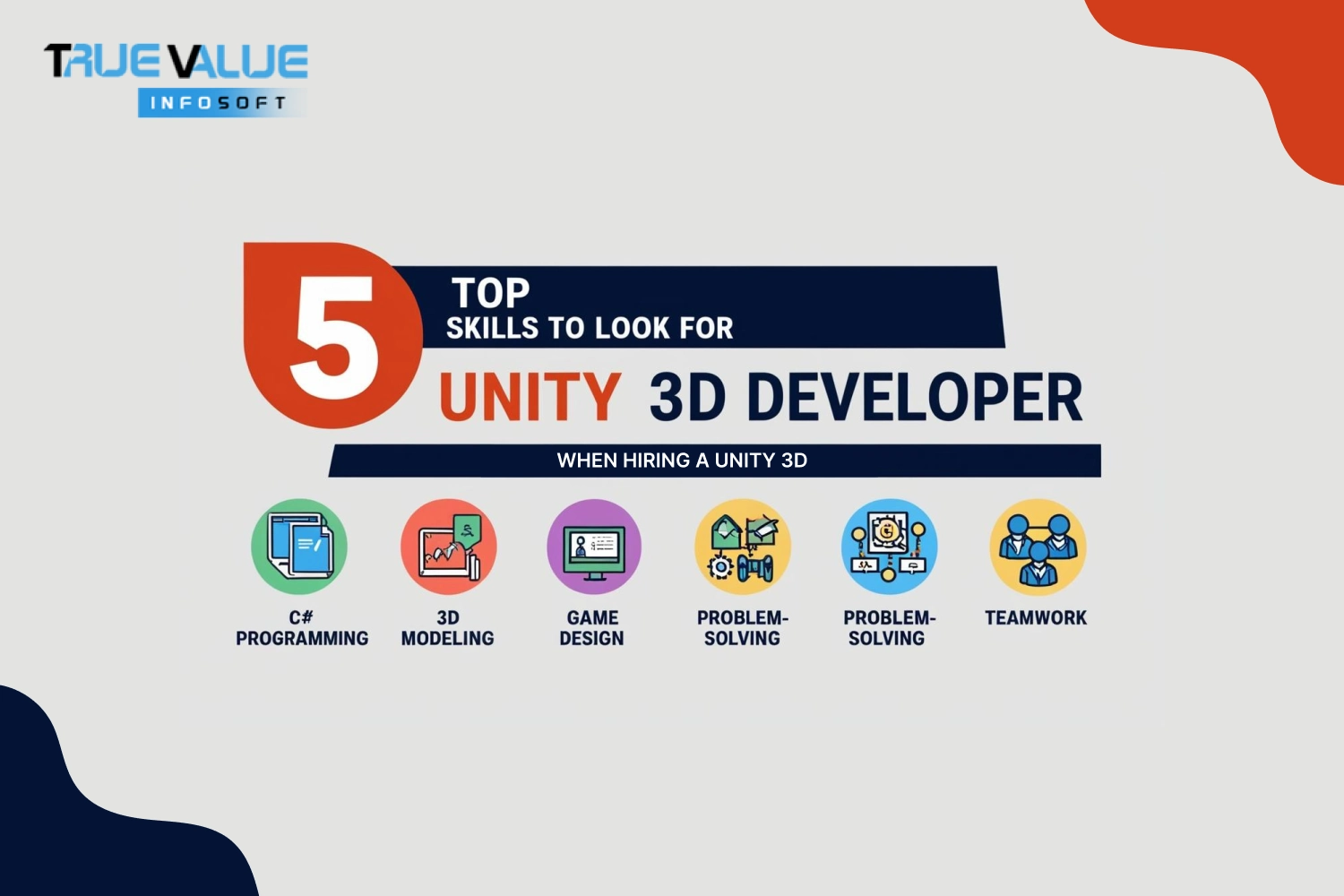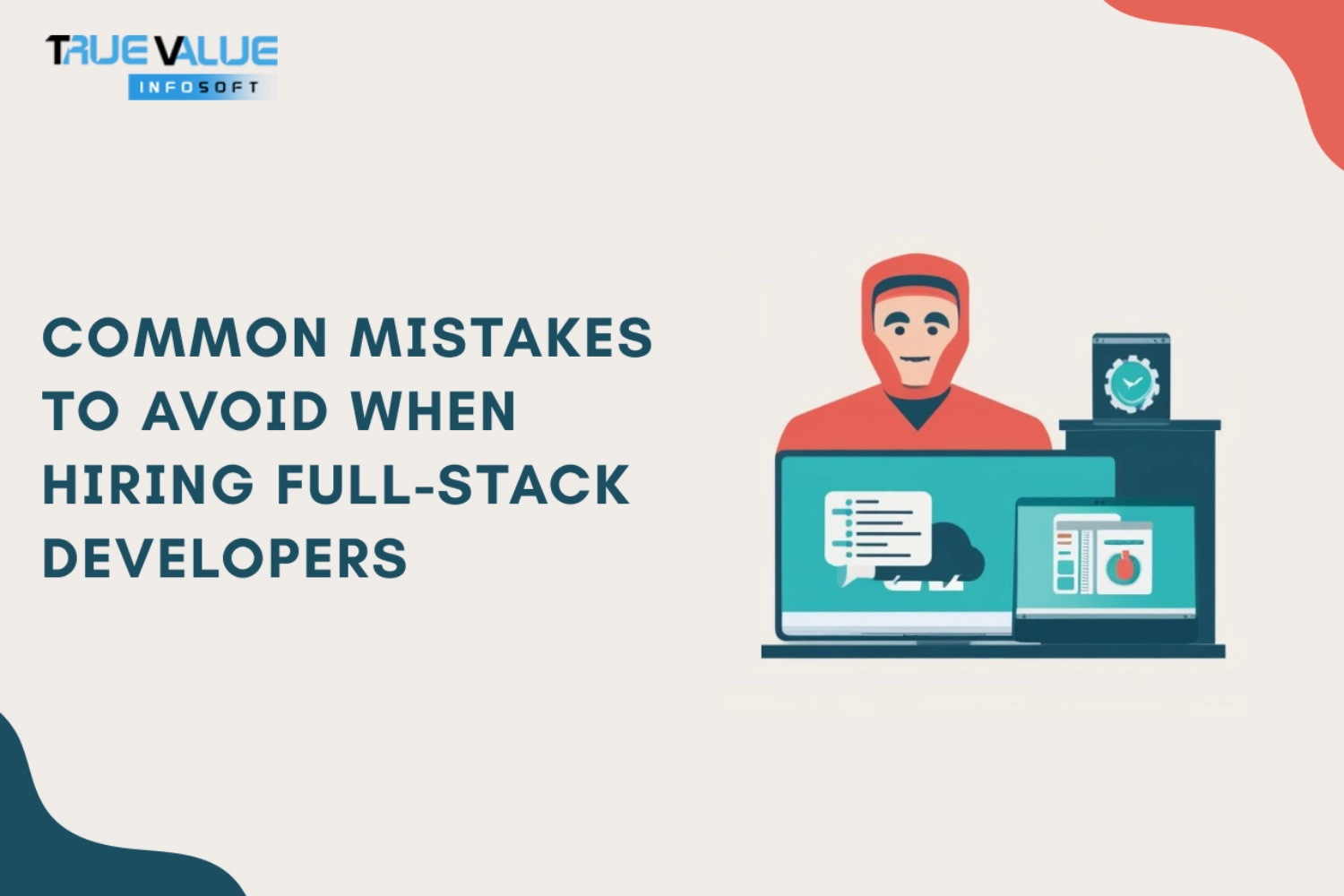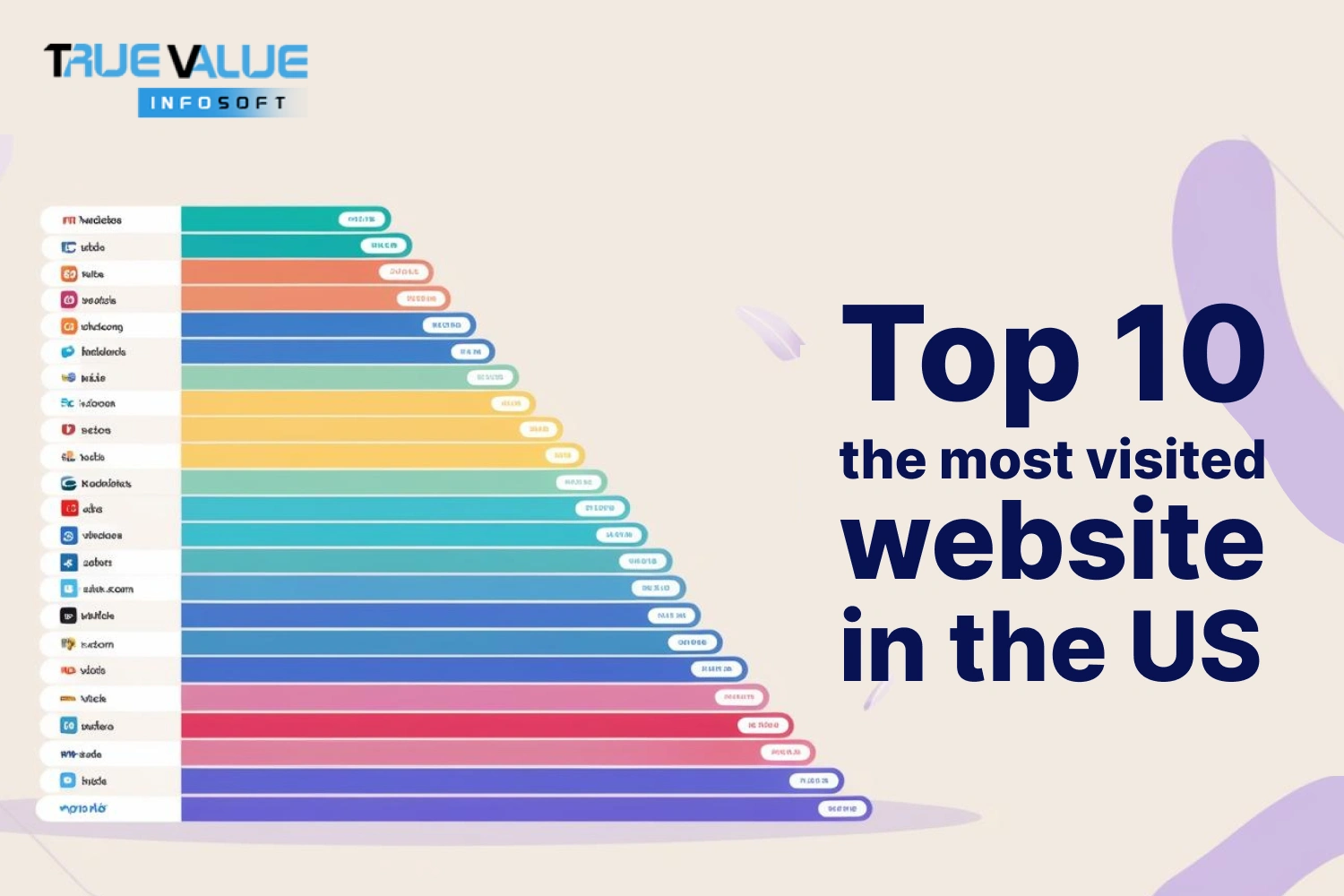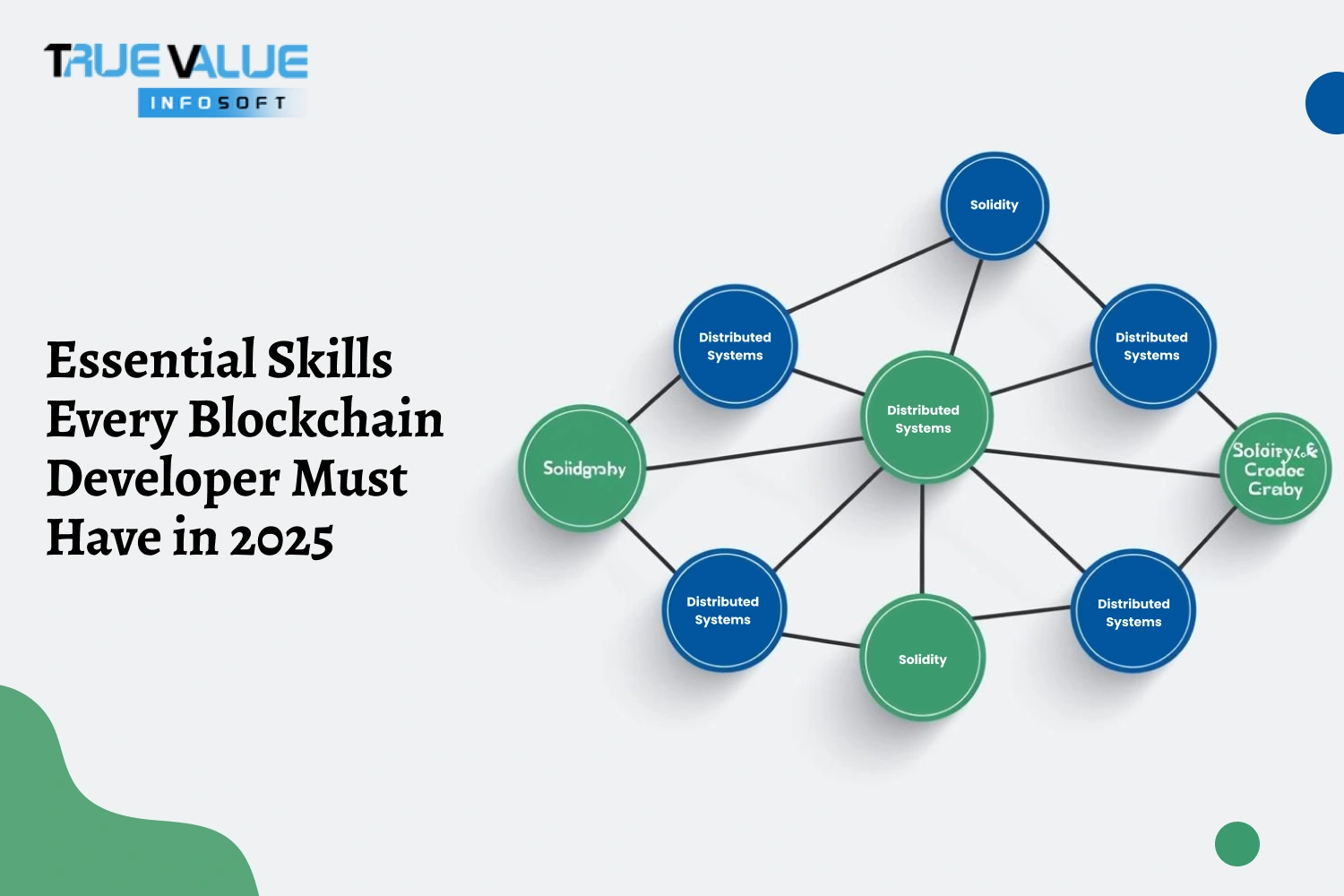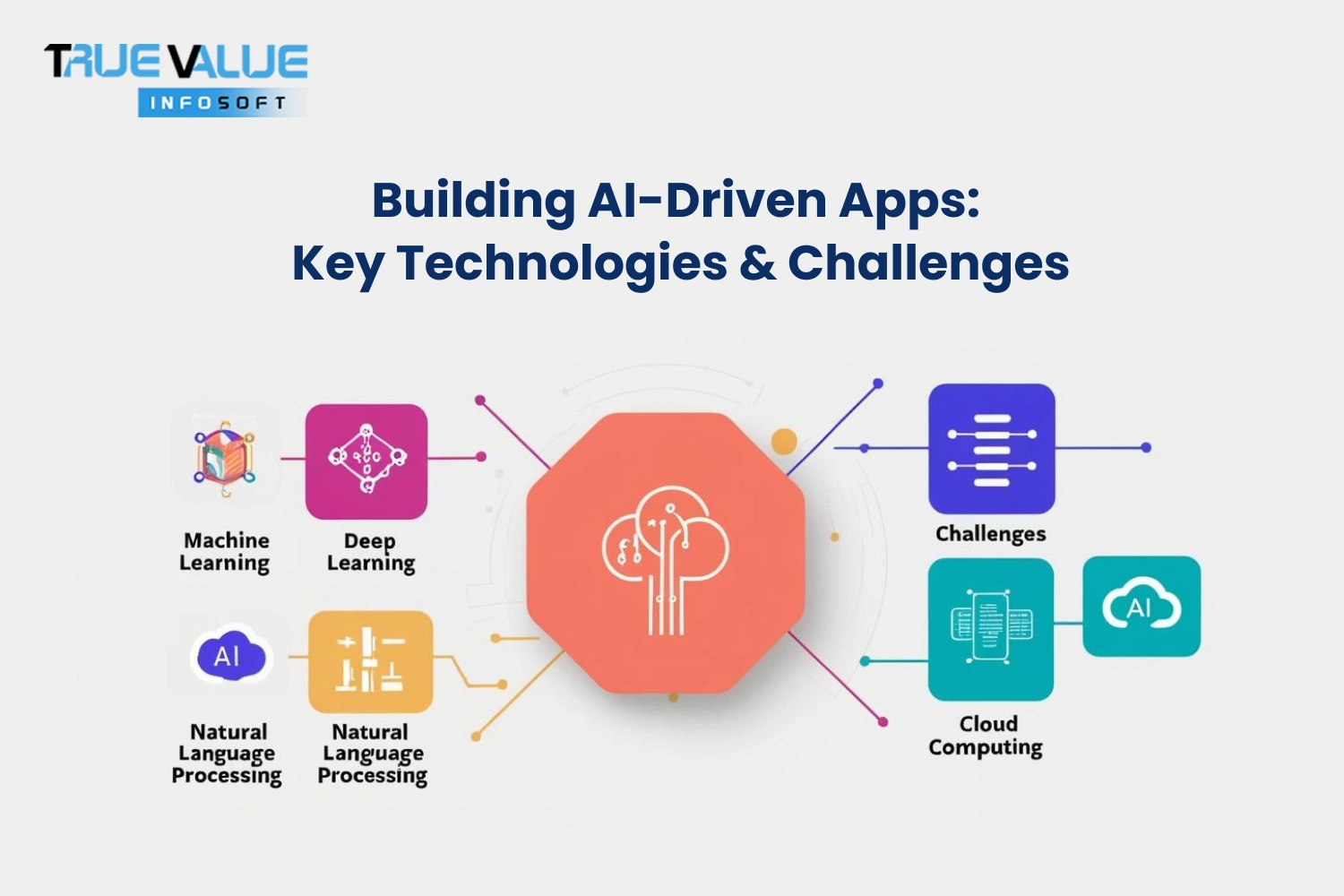Introduction
Have you ever wondered what sets apart a mediocre Unity 3D developer from an exceptional one? Whether you're developing games, virtual reality (VR) applications, or other interactive 3D experiences, the talent behind the development process can dramatically influence the success of your project. Unity 3D, a leading game engine, is an incredibly versatile tool that powers everything from mobile games to high-end VR experiences. However, to harness its full potential, you need to hire the right developer with the skills to create a smooth, engaging experience for users.
Hiring the right Unity 3D developer can make or break your game or immersive app project. In today’s rapidly evolving tech landscape, where interactive experiences are reshaping industries—from gaming to healthcare and beyond—it’s essential to find developers with the right mix of technical skills and creative vision. Whether you’re building a cross-platform game, AR/VR simulation, or 3D visualization tool, Unity remains a leading platform for development. However, identifying the ideal candidate goes far beyond checking resumes. You need professionals who not only master Unity’s interface and C# scripting but also possess expertise in game physics, optimization, and UI/UX design. As the best IT development company in India, True Value Infosoft understands what it takes to assemble top-tier development teams. With years of experience delivering Unity-based solutions across industries, True Value Infosoft stands as a reliable partner in helping you hire the best Unity 3D developers tailored to your project goals.
In this blog, we will explore the top skills to look for when hiring a Unity 3D developer. These skills are essential for building interactive, high-performance applications and games that can run seamlessly across various platforms. Whether you are a gaming startup, an enterprise looking to develop VR solutions, or even an app development company, knowing what to look for in a Unity developer will help you build the right team to bring your project to life.
1. Expertise in Unity Development

At the heart of every Unity 3D developer’s skillset is their ability to master the Unity development platform itself. Unity is a powerful engine that provides all the necessary tools for building interactive 2D and 3D applications. An experienced developer should be highly proficient in Unity's interface, scripting, and the specific features of the engine that enable complex functionality.
Why It's Important:
Unity is a vast platform with numerous components, from scene setup to asset management, lighting, and animation. A skilled developer should be able to navigate all aspects of Unity with ease and should know how to implement different game mechanics and interactive features.
Key Areas to Assess:
- Unity Interface & Scene Setup
- Unity API Knowledge
- Handling Prefabs, Materials, and Assets
- Using Asset Store Packages
- Working with Unity's Physics Engine
- Animation and Timeline Integration
- Memory Management and Optimization in Unity
2. Strong Proficiency in C# Programming
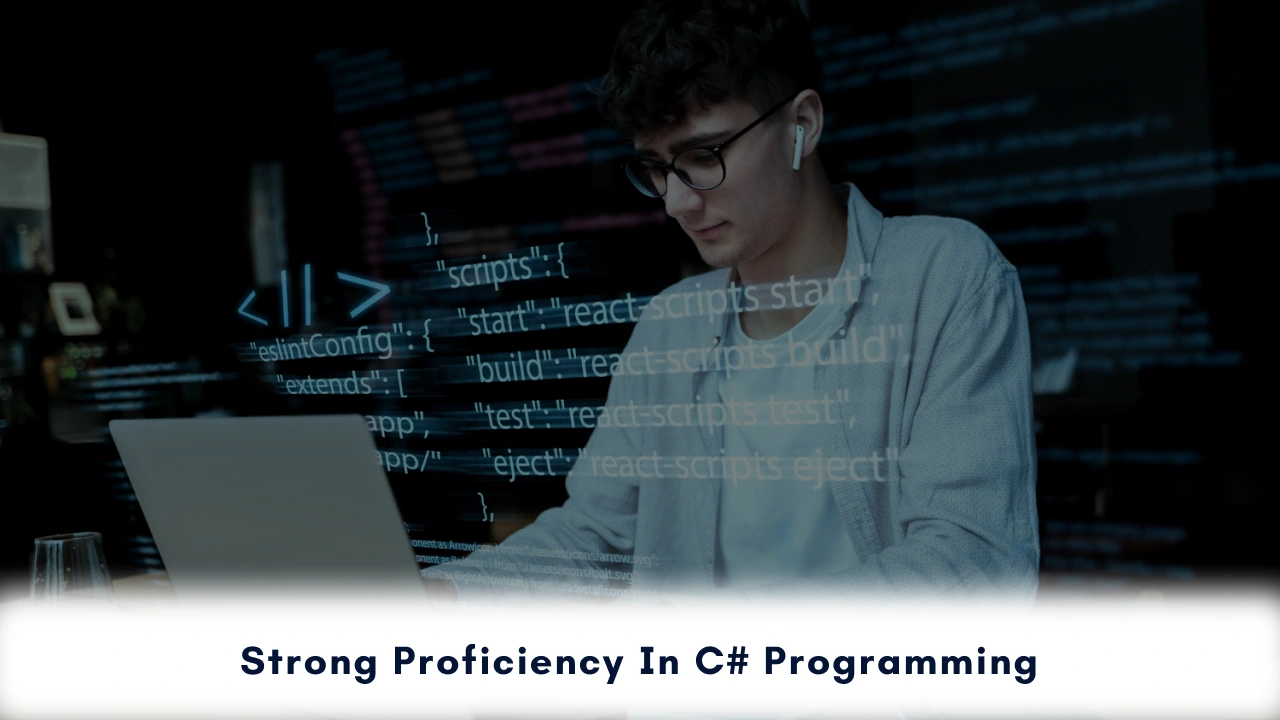
While Unity offers a variety of scripting languages, C# is the primary language used for Unity development. The ability to write clear, efficient, and optimized C# code is essential for building any interactive experience in Unity.
Why It's Important:
C# allows Unity developers to manipulate game objects, create gameplay mechanics, manage resources, and integrate external systems (like APIs and databases). The language is also used to write game logic, user interactions, physics simulations, and more.
Key Areas to Assess:
- Experience with C# and Object-Oriented Programming (OOP)
- Understanding of Unity’s MonoBehaviour Class
- Ability to write clean, efficient code
- Experience with debugging and error handling
- Knowledge of data structures (arrays, lists, dictionaries)
- Understanding of memory management in C#
3. Knowledge of 3D Modeling and Animation
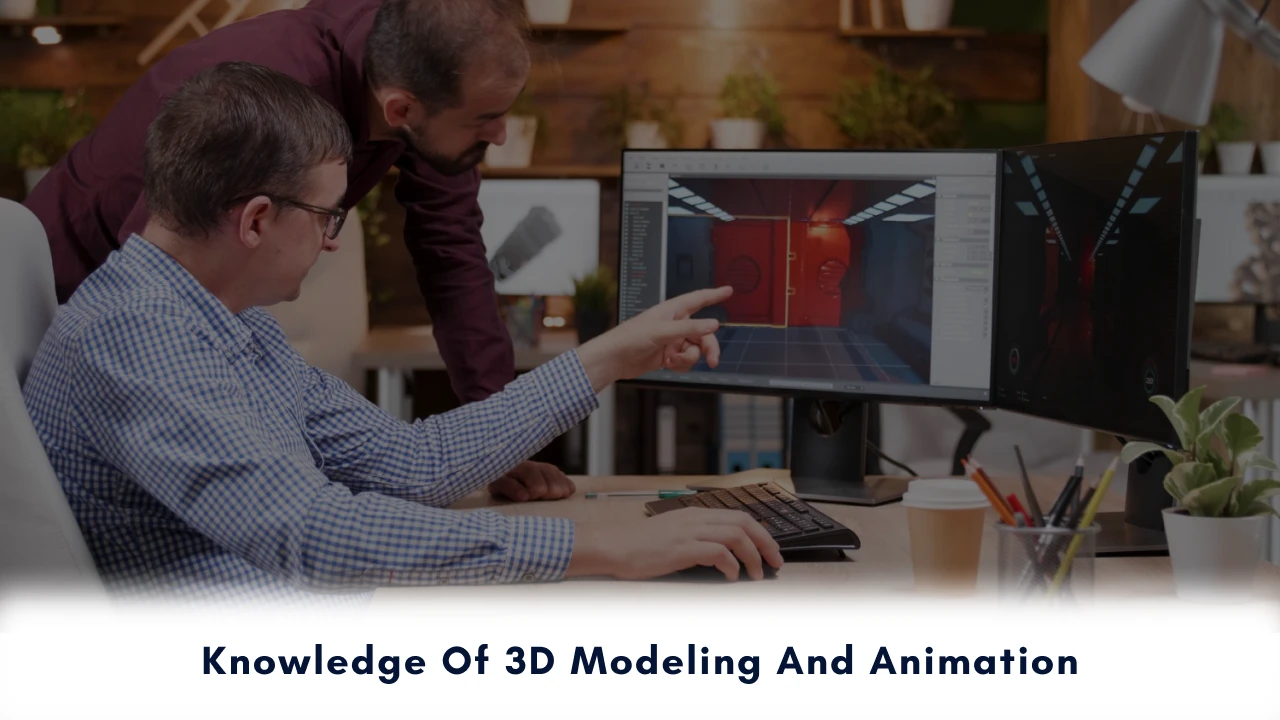
While Unity developers don’t always create 3D models themselves, having a good understanding of 3D modeling and animation principles is crucial for implementing assets in a seamless manner.
Why It's Important:
A Unity 3D developer should be able to import 3D assets and animations into Unity, ensuring that the models are correctly integrated and optimized for performance. Understanding the fundamentals of rigging, skeletal animation, textures, and UV mapping is vital for ensuring smooth animations and realistic gameplay.
Key Areas to Assess:
- Experience with 3D asset integration (from tools like Blender, Maya, or 3ds Max)
- Knowledge of skeletal animation and rigging techniques
- Ability to work with Unity’s Animator and Animation Controller
- Proficiency in texture mapping and UV unwrapping
- Understanding of how to optimize 3D models for performance
4. Not Verifying Real-World Experience

One of Unity’s most powerful features is its ability to create applications that work across multiple platforms. A Unity 3D developer should be well-versed in the nuances of developing for different operating systems, devices, and environments.
Why It's Important:
Unity supports a wide range of platforms, including iOS, Android, PC, Mac, PlayStation, Xbox, Oculus, and even WebGL. Each platform has its own limitations and features, so a developer needs to know how to optimize performance and functionality for each one.
Key Areas to Assess:
- Experience with platform-specific Unity tools (iOS, Android, etc.)
- Knowledge of optimizing for mobile devices and low-power hardware
- Understanding the unique requirements of VR/AR platforms
- Experience with multiplatform deployment and troubleshooting cross-platform issues
- Familiarity with performance optimization techniques for different platforms
5. Solid Understanding of Game Physics and Collision Detection
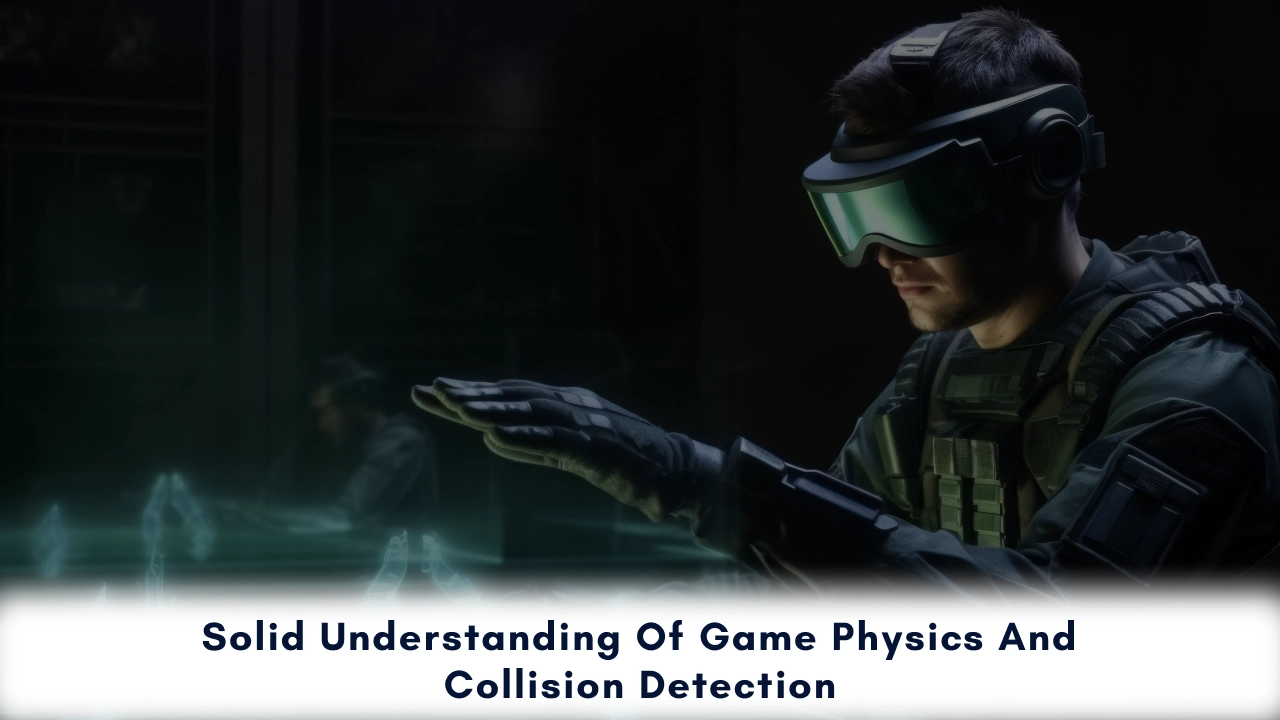
Game physics are crucial for creating realistic gameplay experiences. Whether it’s simulating gravity, force, or object collisions, a Unity developer must understand how to use Unity’s physics engine and optimize interactions for the best user experience.
Why It's Important:
Correctly implementing collision detection and rigidbody physics ensures that objects move and interact in a believable way. Additionally, performance can suffer if physics are not implemented efficiently, especially in real-time applications.
Key Areas to Assess:
- Familiarity with Unity’s RigidBody and Collider components
- Understanding of physics materials (friction, bounce, etc.)
- Ability to optimize physics calculations for performance
- Experience in solving common physics-related issues (e.g., jittering, collision errors)
- Knowledge of NavMesh for pathfinding and AI navigation
6. Proficiency in UI/UX Design and Development

Unity developers often need to create user interfaces (UI) and ensure that the user experience (UX) is smooth and intuitive. Understanding how to implement responsive and interactive UI elements is crucial for creating engaging applications.
Why It's Important:
An app or game that lacks a well-designed UI can frustrate users, leading to poor retention rates. Unity provides tools for building menus, buttons, sliders, text fields, and more. A good Unity developer should be able to implement these UI elements and integrate them into the game seamlessly.
Key Areas to Assess:
- Experience with Unity’s UI Canvas and UI elements
- Knowledge of layout and responsiveness (especially for mobile and tablet)
- Ability to create UI animations and transitions
- Familiarity with Unity’s Event System for handling user input
- Understanding UX principles to improve user satisfaction
7. Experience with VR/AR Development
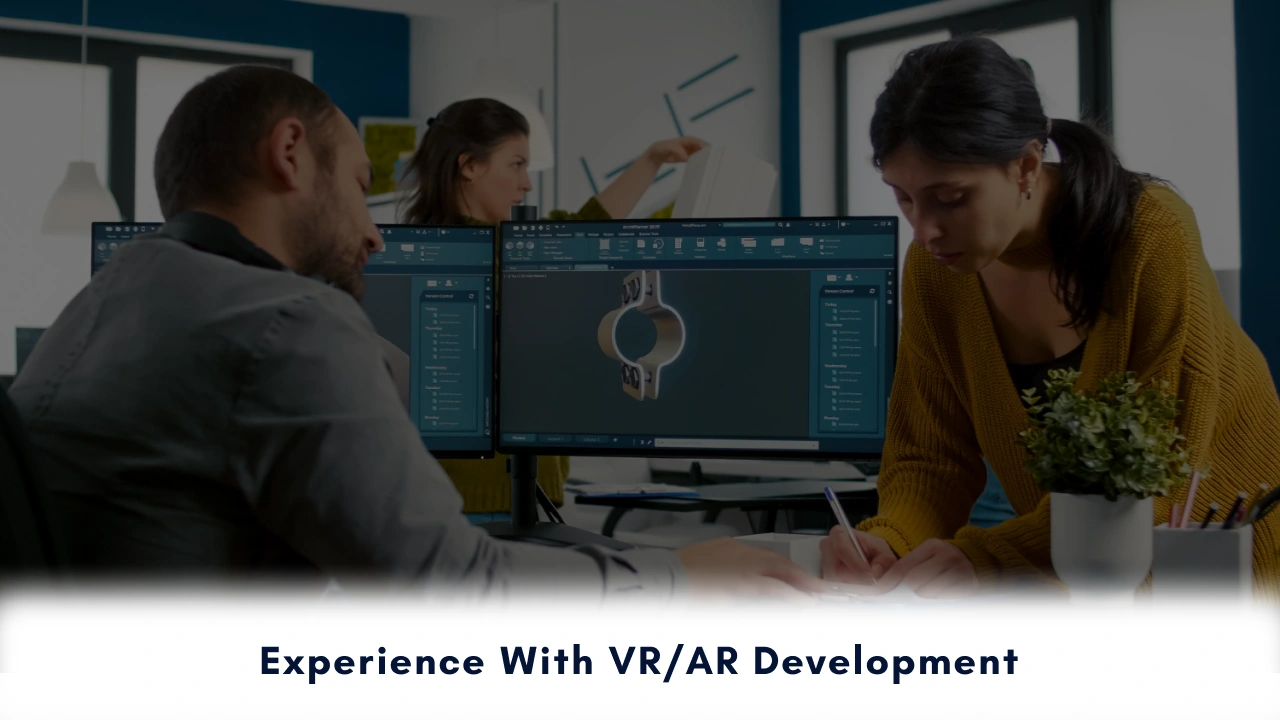
As virtual reality (VR) and augmented reality (AR) technologies continue to grow, it’s increasingly important to hire Unity developers who are knowledgeable about these platforms.
Why It's Important:
Unity is one of the most commonly used engines for developing VR and AR applications. A developer with VR/AR experience will be familiar with platform-specific features, including head-tracking, motion controllers, spatial audio, and more.
Key Areas to Assess:
- Experience with Oculus Rift, HTC Vive, PlayStation VR, and other VR systems
- Familiarity with ARKit and ARCore for AR development
- Knowledge of 3D interactions specific to VR/AR environments
- Experience with VRTK or other VR toolkits
- Ability to optimize VR/AR applications for comfort and performance
8. Strong Debugging and Problem-Solving Skills

A strong Unity 3D developer should have excellent debugging and problem-solving abilities. The development process often involves solving complex issues related to gameplay mechanics, UI elements, and performance.
Why It's Important:
A developer's ability to troubleshoot and fix bugs efficiently can significantly impact project timelines. Additionally, problem-solving skills are vital for optimizing performance and ensuring the application runs smoothly.
Key Areas to Assess:
- Familiarity with Unity’s Profiler and Debugging Tools
- Experience identifying and resolving common game-breaking bugs (e.g., collision, rendering issues)
- Knowledge of optimization techniques to improve performance
- Strong analytical and troubleshooting skills
9. Version Control with Git

Version control is essential for any software development project, especially when working with teams. Git helps developers manage code changes, collaborate with others, and avoid losing work.
Why It's Important:
Unity projects can quickly become complex with many assets, scripts, and scene files. Git allows developers to manage and track changes, ensuring that everyone on the team can work on the project without interfering with each other’s work.
Key Areas to Assess:
- Proficiency in Git for version control
- Experience with platforms like GitHub or GitLab
- Knowledge of branching, merging, and resolving conflicts
- Understanding of proper workflows for Unity-based projects
10. Soft Skills: Communication, Teamwork, and Collaboration

Beyond technical expertise, a Unity 3D developer should possess soft skills that enable them to work effectively within a team. These include communication, problem-solving, and collaboration.
Why It's Important:
Most Unity projects involve collaboration between multiple teams, including designers, artists, and product managers. Strong communication and teamwork skills ensure that everyone is aligned and the project progresses smoothly.
Key Areas to Assess:
- Ability to collaborate with designers, artists, and other developers
- Communication skills for explaining technical challenges
- Problem-solving skills and adaptability
- Willingness to receive and give constructive feedback
Conclusion
Hiring the right Unity 3D developer is crucial for the success of your gaming or interactive application project. By focusing on the technical skills outlined above—along with essential soft skills—you can ensure that your Unity 3D developer is well-equipped to deliver high-quality, performant, and user-friendly applications.
True Value Infosoft, the best IT company in India, offers top-tier Unity 3D development services. Our developers are well-versed in the latest technologies and best practices for Unity development, ensuring that your projects are completed with efficiency and excellence. Whether you're building games, AR/VR applications, or simulations, True Value Infosoft has the experience and expertise to turn your ideas into reality.
Let us help you find the perfect Unity 3D developer for your project, ensuring smooth development and outstanding results.
FAQs
When hiring a Unity 3D developer, prioritize skills such as strong proficiency in C# programming, deep understanding of Unity’s engine features (like physics, lighting, and rendering), experience with 3D modeling tools (like Blender or Maya), and familiarity with AR/VR technologies if your project needs it. Knowledge of shader programming and optimization for different platforms (iOS, Android, PC, consoles) is also very valuable.
Unity development often involves tackling complex gameplay mechanics, bug fixing, and performance issues. A developer with strong problem-solving skills can find creative solutions quickly, saving time and improving the final product’s quality. They can also better adapt when technical roadblocks arise during the development cycle.
Yes, if your project involves multiplayer or online functionalities, it’s important to hire a Unity developer who understands networking concepts like client-server architecture, real-time data synchronization, matchmaking systems, and using Unity’s Netcode for GameObjects or third-party solutions like Photon or Mirror.
Very important! A good Unity 3D developer should be able to optimize and adapt games or applications for multiple platforms, including mobile devices, consoles, PCs, and VR/AR headsets. Each platform has its own performance, UI, and hardware considerations, so cross-platform experience ensures broader reach and better user experiences.
Strong communication skills, teamwork, creativity, attention to detail, and a willingness to learn new tools and techniques are crucial. Unity projects are often collaborative, so developers must work well with designers, artists, and other programmers to bring a shared vision to life.
